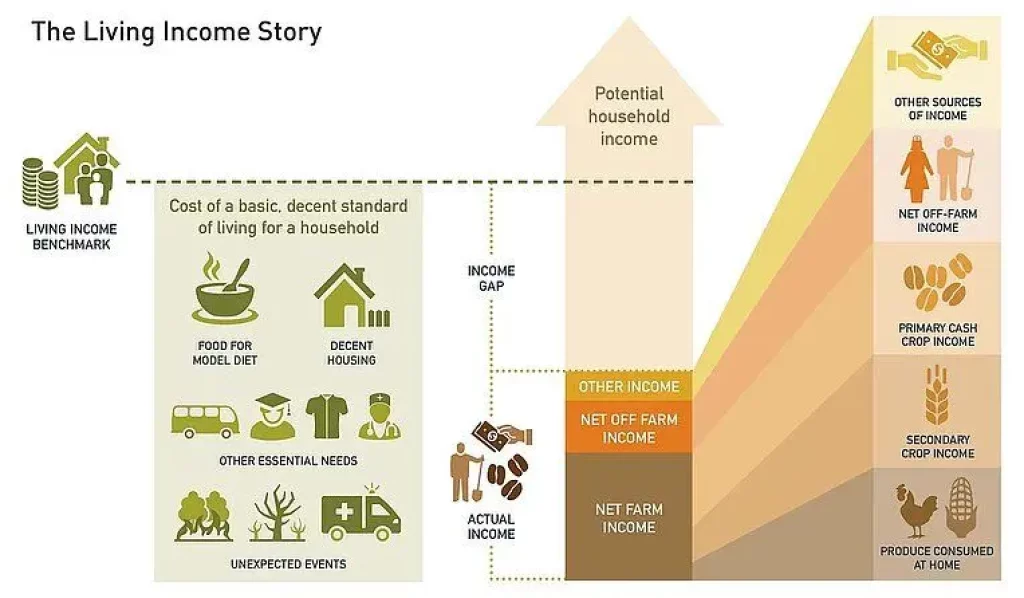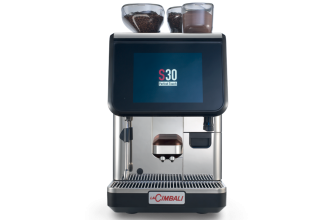Sustainability in the Coffee Sector


Closing the living income gap
The living income is the amount of money needed to have a decent living standard. An income is supposed to provide not only for the basic physical needs, such as food, shelter and clothing but more so, having access to health care, healthy foods, a safe home, access to school and savings for emergencies. However, most smallholder coffee farmers are not earning enough to satisfy all those needs, which is unsustainable for them and the coffee sector.
For farmers an income can consist of primary and secondary crop income, off-farm income, produce for household consumption and other sources of income (see Figure 1).
In order to have a decent standard of living, farmers have to earn a living income. This helps them manage their business in a sustainable way, while also providing for their families. When farmers earn just above the poverty lines, it forces them to focus only on immediate survival, restricting the energy they can put in their business, the environment and the community. A higher level of income allows farmers and their business to truly thrive and further invest in their future.
On average, across the countries Brazil, Ethiopia, Honduras, Indonesia, Tanzania and Uganda, which are some of the top coffee producing countries, the income gap between the annual income and the living income amounts on average $2.000, according to Dr. Katharina Lima de Miranda, Manager at the Hanns R. Neumann Stiftung (HRNS), this is an income gap averaging around 60%.
This calls for action. The importance of closing the income gap becomes a major challenge, considering climate change, price volatility and for the youth to see a future in the coffee sector. A holistic approach is needed, which must take multiple factors into account, such as building resilience to shock such as disease, natural disasters, aforementioned price volatility, and furthermore addressing underlying weaknesses in supply chains, infrastructure and institutions.
Therefore, the HRNS developed the Theory of Change, taking a holistic strategy to help the lives of smallholder coffee farmers. It goes beyond coffee production; it is about individuals and their families trying to make a living in a proactive and self-determined way. The emphasis of the Theory of Change is on good agricultural practices, gender equality, strong farmer organization, opportunities for the youth, and resilience to shocks.
Another step towards sustainability.
Author: Kira Zus





